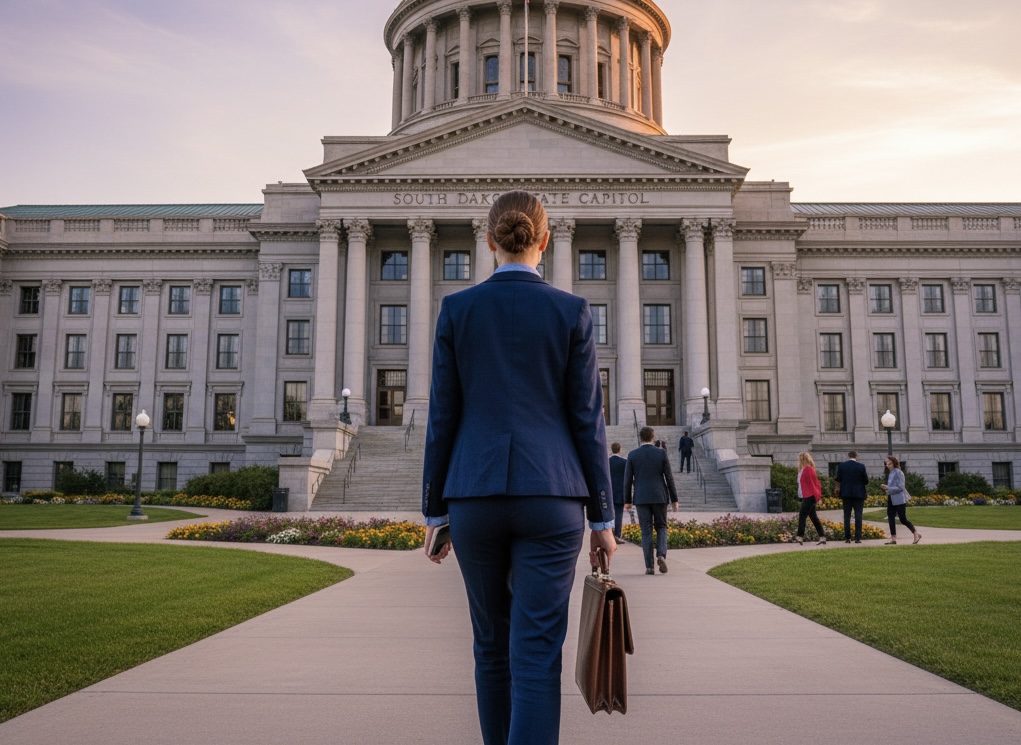As of this month, children in South Dakota are protected from a significant amount of explicit online content thanks to a new law that took effect on July 1 and a US Supreme Court ruling that ensured its implementation is constitutional.
HB 1053, proposed by Rep. Bethany Soye, requires adult websites to verify users are 18+ before granting access to the platform. A similar bill was attempted in the 2024 Legislative Session but was roadblocked in the Senate. This year, the bill passed out of the House by a margin of 61-5 and unanimously passed through the Senate. The bill was signed into law by Governor Rhoden on February 27, 2025, and went into effect on July 1, 2025.
The legislation uses the state’s pre-existing standards to determine what constitutes “harmful content for children,” excluding scientific and artistic works. The bill summary explains that it “stipulates that any third party conducting age verification on behalf of a covered platform must not retain any identifying information collected during the process,” thereby ensuring the privacy of users is protected. Similar methods are used for online banking, shopping, and accessing medical records online.
“I’m a mother of three young boys and I know how dangerous pornography is for children and how it really distorts their minds,” Soye explained. “We have it on the books as ‘material harmful to minors’ for a reason because it is harmful to minors. I wanted to take a step forward to try to protect children from that material.”
The bill also establishes a legal framework for enforcing the law, starting with the attorney general notifying platforms of non-compliance. The platforms then have 90 days to rectify the error, and if they do so, they will not face legal repercussions. Any civil penalties that are collected by the attorney general will be deposited into the state general fund. The bill also notes that “the provisions do not apply to general-purpose search engines, internet service providers, or cloud service providers.”
So far, The Dakota Scout reports that “Of the top 10 adult websites according to SemRush.com, four have age verification, two say age verification is coming and link to a blog that claims it’s a ‘scam’, two are disabled and four have no age verification.”
South Dakota isn’t alone in passing such a measure. In fact, 23 other states have created similar laws. One of those laws – Texas’s – was the center of a landmark US Supreme Court case.
On June 27, the US Supreme Court ruled in a 6-3 decision that allowing states to enforce age verification laws for websites with adult content does not violate the First Amendment rights of adults. The case, Free Speech Coalition, Inc. v. Paxton, centered around Texas law H.B. 1181, which requires websites and social media platforms to verify the age of users if more than one-third of the content is sexual material deemed harmful to minors. The Court found that “protecting children from sexually explicit material online justifies the burden that the age-verification requirement puts on adults.” Justice Clarence Thomas rightfully noted in the majority opinion that “adults have no First Amendment right to avoid age verification.”
This incredible ruling protects South Dakota’s ability to enforce HB 1053 without fear of legal repercussions.
“This is a major victory for children, parents, and the ability of states to protect minors from the damaging effects of online pornography,” Texas Attorney General Ken Paxton wrote following the Supreme Court decision. “Companies have no right to expose children to pornography and must institute reasonable age verification measures.”






